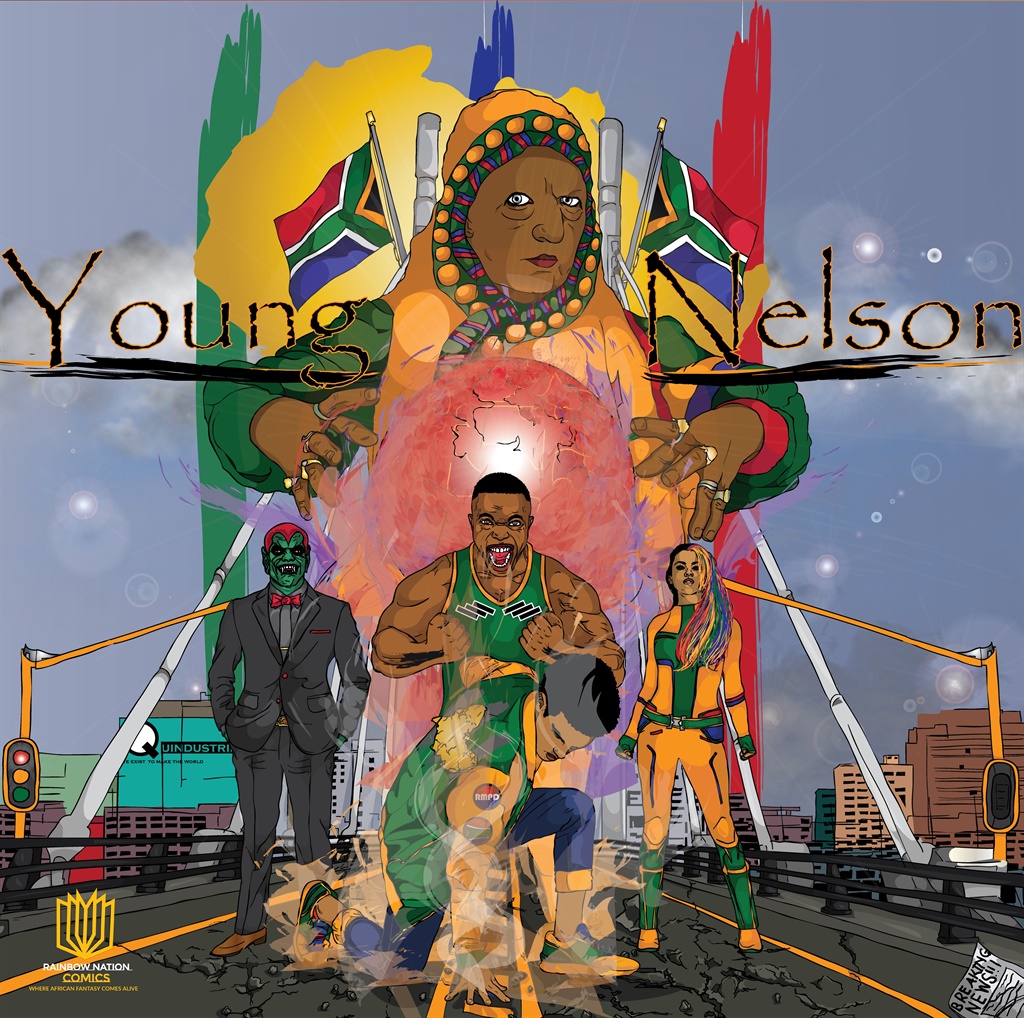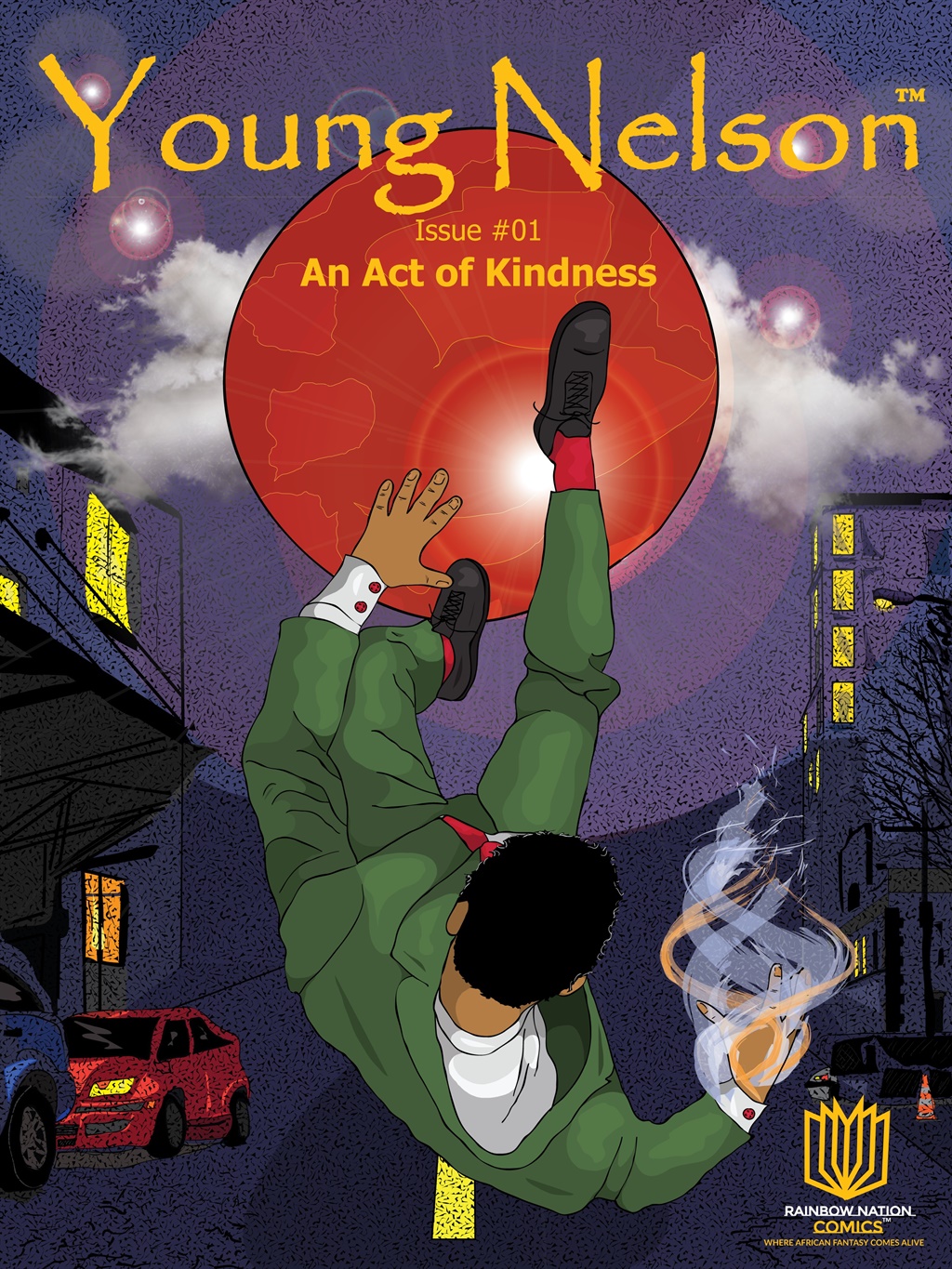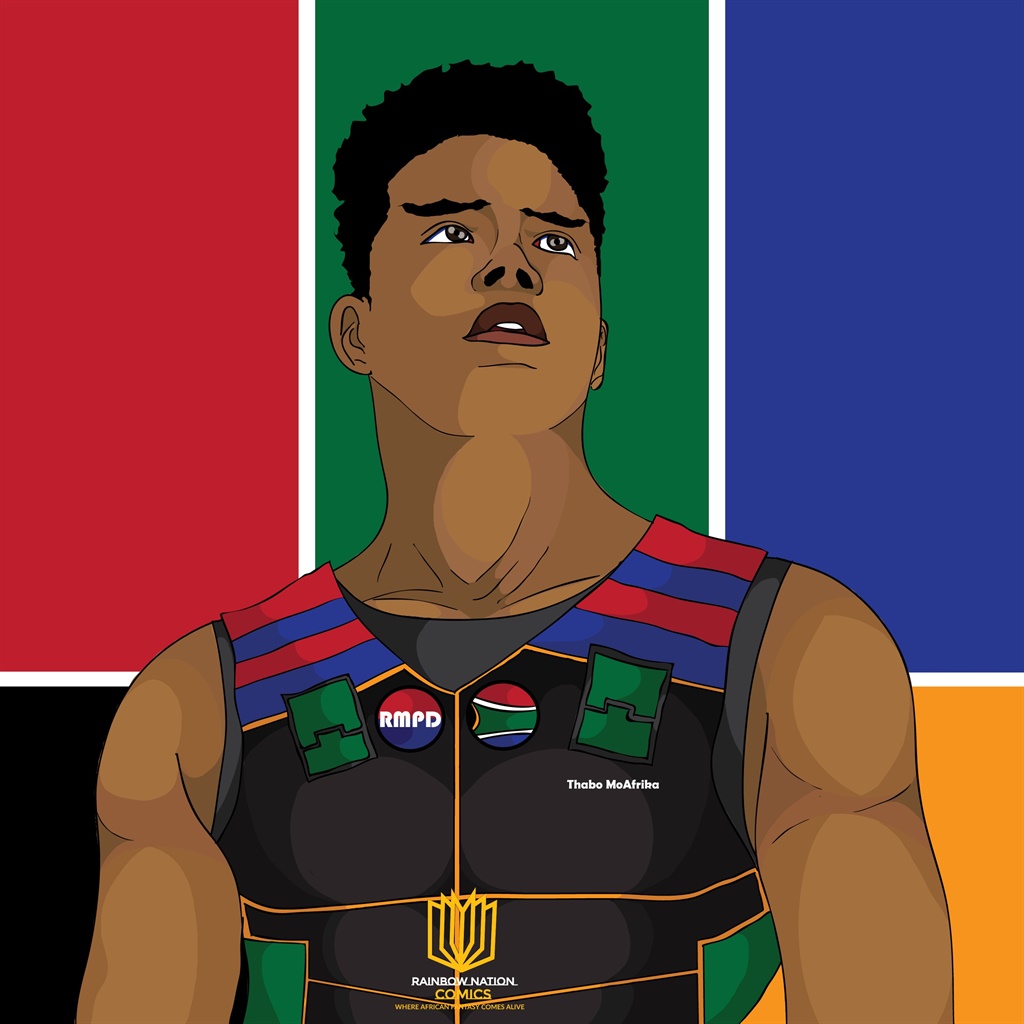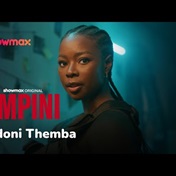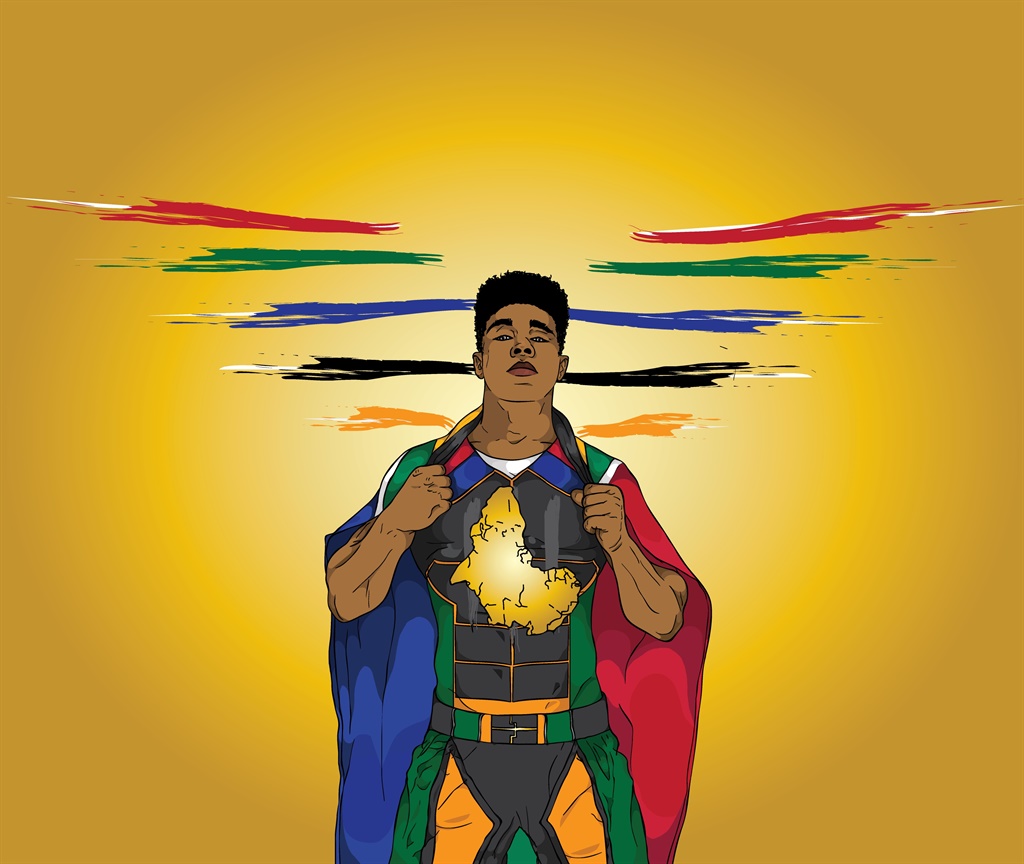
Comic Con Africa has proven that there’s a real thirst for comic books in our country,but there still seems to be a huge gap between local comic book creators and the buying public. Muhammad Hussain looks at those creators who are trying to bridge the gap
Last month saw two notable events that sought to help raise the profile of local comic creators in Johannesburg. One was Comic Con Africa, which saw about 71 000 people make the trek to Gallagher Convention Centre in Midrand over four days. The other, The Art Of Comics, is on at the Johannesburg Art Gallery (JAG) until the middle of next month and features work by local creators and French comic artists. In their own way, these events helped reach two markets that wouldn’t ordinarily be exposed to local comics – pop culture worshippers and fine art fans.
Loyiso Mkize (32), the co-creator of the hugely famous South African comic Kwezi and South Africa’s poster boy for comic creators, found himself featured at both of these events. With an enigmatic smile, a lanky disposition and an aura of contentment as the excited but reserved voices of gallery goers rang out around us at JAG, Mkize told City Press that these types of events created a wealth of opportunity for him and for the local artists, and “serves right to the hustle that came beforehand. For the longest time we were trying to activate a market with our comics; we were literally giving the comics away for free. We were trying to get to as many festivals and conventions as possible.”
Now that this niche industry has started to blossom, Mkize feels grateful and privileged to be a part of it as he continues to create content for a diverse, burgeoning market.
“It’s our luck to be the custodians of that and be the first generation of that,” Mkize says.
Other creators who are working to make a name for themselves locally are Phemelo Dibodu (28) and Omphile Dibodu (25), brothers from Rustenburg who created Young Nelson – a superhero with a good heart born from the struggles of unemployment and violence.
Young Nelson and the Dibodu brothers – Phemelo is the writer and Omphile is the illustrator – began their journey about three years ago after Phemelo realised that his initial dream of creating “conscious music” was not marketable as it kept getting rejected.
“I was giving up music and said to myself: ‘You pushed, it’s okay, focus on your job now,’” the bespectacled Phemelo says. That feeling of incompleteness led him to write another song, this time about former president Nelson Mandela, called Young Nelson.
“I took his words: ‘Sometimes it falls upon a generation to be great … ’ and used that [as inspiration],” Phemelo says, adding that at some point he realised that the words he was writing down were starting to develop into a persona.
Acutely aware of how Mandela’s legacy is being contested, Phemelo says that he knew people would say, “ah, he’s sucking up to the Nelson Mandela brand, but if there was any opportunity to buy into the rainbow nation brand, to buy into the Nelson Mandela brand, it is now, when everybody’s given up on it”, Phemelo says.
“When things get difficult, it is the time to promote the values of somebody who brought you together the first time.”
An avid reader with a keen interest in history – from politics and comics to world history – Phemelo, who studied public relations at the University of Johannesburg, says he toyed with many characters and personality traits before finally putting a coherent storyline in place that he could pitch to a publishing house. The publishing house seemed keen, but told him he would have to self-publish first as the comic was unproven territory.
This forced Phemelo to bring an artist on board, whom he paid using money he had saved from working odd jobs. This, however, proved to be a disaster as the drawings were “horrible”.
He was unemployed, with barely any money left and not much motivation when Omphile asked if he could have a go at it.
“He comes back and he’s drawn it. I pay a guy, like, R2 000 to produce artwork ... why didn’t God give me my brother from the start?” he jokingly asks, but the sting from that lesson still lingers in his eyes.
The brothers’ collaboration led them to found Rainbow Nation Comics – a publishing house under which they publish Young Nelson and “a whole pantheon of characters”.
The problem, however, was that they had no funding and no jobs.
“The game plan with this was that it could take years, so I was emotionally prepared for this,” Phemelo says.
Currently, Phemelo and Omphile have day jobs, not in their intended fields, to pay the bills while they work on Young Nelson in the evenings or over the weekends. Omphile started working part-time for a marketing company and has now joined a community radio station as an intern.
This long game is not a new phenomenon in South Africa and has forced some of its most striking creative talent to look beyond our shores to seek the dollars.
Sean Izaakse, who has been contracted to Marvel for the past three years and has just drawn the Hulk battling the Thing from Fantastic Four, says that, “locally, you have to have another job. [Comic art] can’t be your full-time job. Or maybe you have to have a team, like Kwezi, but even that is also a hustle.”
Izaakse, who was, once upon a time, a newspaper designer and had to design brochures with “dead animals and trophy animals”, feels that local companies and corporates do not value their creatives.
“I felt like companies in South Africa did not have my interests at heart and, creatively, they weren’t fulfilling at all. With Marvel, it feels like it is trying to make me bigger,” he says.
After a year of trying to get funding, Young Nelson made its debut at Comic Con Africa with not much fanfare – priced at R20 a pop and printed on newspaper that was sponsored by Rustenburg Herald – but the brothers managed to sell just under 300 copies over the four days.
“Comic Con Africa was pretty much our first step to letting the rest of the world know that there is an interest in what we’re doing,” Omphile says.
He adds that Rustenburg Herald was so impressed that it initiated another print run of 9 000 copies.
The first issue of Young Nelson, An Act of Kindness, introduces Thabo MoAfrika, an unemployed graduate from Rustenburg who is a rising star at a boxing gym. He iskind-hearted and not afraid to stand up to bullies, but he is faced with the possibility of losing the place he trains at because the gym cannot pay rent. Compounding this is the fact that he regularly gets rejected at job interviews and can’t help pay the gym’s rent or even support his family.
One day Thabo is walking home despondent when he sees an old woman begging and no one willing to assist. He gives her his taxi money and the old woman touches his hand and says: “Thank you, Nelson.” Before he can correct her, he enters a dream state and wakes up two days later in bed. The comic ends with his body burning up and a tattoo of an upside down outline of Africa appearing on his arm.
Phemelo says that about 60% of the storyline is based on his and his brother’s experiences with unemployment and their family life. Hey says the old woman is Mama Africa and was based on the first time he saw someone begging on the streets of Rustenburg.
“There was a time when I moved from the village to town and I saw this old woman begging for money. As a child, this blew my mind because in the village you get people who don’t have a lot, but never to the point where they are that poor.”
He says he doesn’t want to reveal too much of Thabo’s superpowers just yet, but hints that Mama Africa plays a big part in the main story arc.
In contrast, if you swing by some of the comic book stores in Gauteng, what stands out among the vast amount of international comics in stock is that supply of local comics is very limited or even non-existent.
Smallville Comics says it stocks some local comics such as Kwezi, but on consignment as they are not all that popular, while Cosmic Comics says it doesn’t carry local comics or indie comics mainly because “[customers] want comics every month and what happens with local guys is that they have day jobs and they bring out comics once every six months”, and by this time fans have forgotten about the storyline or even the comic itself. The shops suggest that local comic book creators look at releasing graphic novels – three or four single-issue comics in one go – instead of single-issue comics erratically.
Phemelo says that they have the next four issues in the conceptualisation phase, but “the challenge is that of resources and time, mainly so that we can get feedback and confirmation that we are on the right track”.
He does admit that the four issues could take up to six months to get published, especially if resources and support are not available.
Luckily, his day job is at a printing facility, where he can lean on staff benefits to print sample copies when needed.
“We want to take the time to introduce people to the Young Nelson comic book, rather than for it to just go on the shelf at Exclusive Books because we don’t know who’s buying our product, what they think of it, or what they would prefer to see in it,” Omphile says.
He adds that they have approached comic book stores and will, over the course of the next few weeks, reach out to them again, but he is under no illusion and knows that some stores don’t stock local comics, while others need a lot of convincing.
The gap between comic book creators and the market is closing rapidly and the more events, movies and animations that are developed within the country by the country’s finest, the better the environment will become.
“There is a wealth of comic book creators who have to be indie right now because of how the structure of publishing and distribution is set up,” Mkize says, “and we need to change that … dig back into our talent, expose it, enjoy it, celebrate it, publish it and distribute it to bring wealth to those creators.”
COMIC BOOK COLLECTING
Thabani Zondo’s retirement plan is not solely based on annuities and traditional investments, it also includes comic books.
“I own more than 300 comic books and only properly started collecting three years ago,” Zondo says.
He is the marketing manager at Heroes of Games and Comics, a chain of comic book stores in Gauteng, and what got him fully immersed in collecting comics was when he heard about Nicolas Cage selling his copy of Action Comics #1 for $2.1 million (R32 million) in 2011. Some comics have even broken the $3 million mark, depending on the quality of the print.
Zondo says he uses an app called Key Collector Comics, which provides all the relevant information about new and old comics, such as which ones are worth keeping as collectibles.
Tips for collectors:
- Make it distinct: Have a portfolio where you keep high-value comics and another for the ones you read.
- Check prices: Use eBay, Key Collector Comics and local comic book stores to find out the going rate.
- Research, research, research: Some comics can be valuable if they are first appearances of characters. Others might say “first appearance”, but it might be a reprint, which is not as valuable.
- Keep an eye on movies and series: Superhero movies tend to create a lot of hype and usually comic book values rise with a new superhero movie or series. An issue of The Walking Dead retailed for R90, but its value shot up to $4 000 when the TV series become popular.
- Grading: When dealing with graded comics, make sure to check the authenticity of the grading. Certified Guaranty Company is the standard comic book grading service.
- Signatures: Make sure signatures are authenticated. Stan Lee’s signature is worth between R6 000 and R10 000.
- Evaluate: Like any investment, continuously evaluate your investments for the long term.




 Publications
Publications
 Partners
Partners




